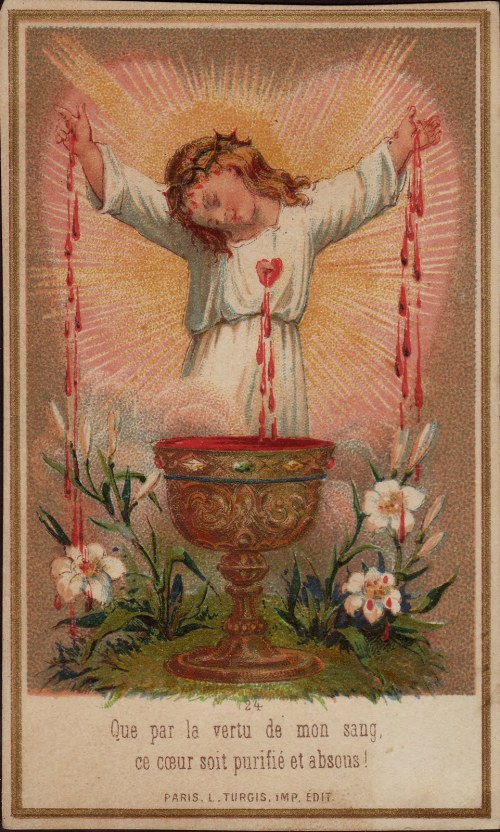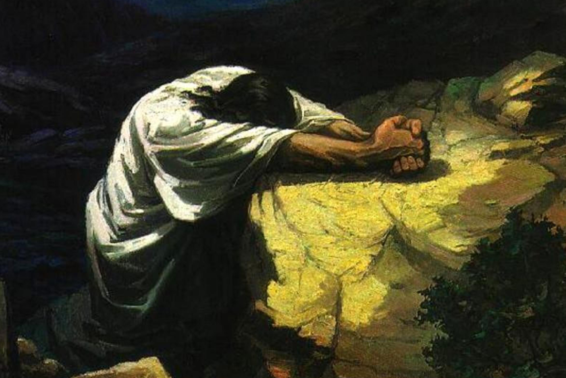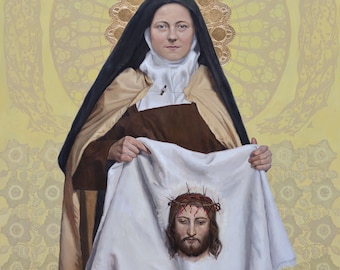Remember, man, that you are dust, and unto dust you shall return.
Our forty days of penance commence with the reception of blessed ashes. The words from the book of Genesis (3:19) help us to think of the shortness of life, of our last end, and of that moment when each shall come before God to be judged. "Remember," wrote Saint Teresa of Avila, "that you have only one life, which is short and has to be lived by you alone; that there is only one glory, which is eternal."
Since Old Testament times, ashes have been a symbol of sorrow for sin. "For I did eat ashes like bread, and mingled my drink with weeping." (Psalm 101:10) In the early Church, only "public" sinners, those guilty of murder, adultery, or idolatry, who had formally repented, would receive ashes on Ash Wednesday. During Lent, they would humbly kneel at the doors of the church, not entering until they were given absolution on Holy Thursday. The famous liturgist, Abbot
Gueranger, gives a description of the ceremony "of the Wednesday in
Quinquagesima:"
Before the Mass of the day began, they [the penitents] presented themselves at the church....The priests received the confession of their sins, and then clothed them in sackcloth, and sprinkled ashes on their heads...the clergy and the faithful prostrated themselves and recited aloud the seven penitential psalms. A procession, in which the penitents walked barefooted, then followed; and on its return, the bishop then addressed these words to the penitents: 'Behold, we drive you from the doors of the church by reason of your sins and crimes, as Adam, the first man, was driven out of paradise....' The clergy then sang several responsories, taken from the book of Genesis....The doors were shut, and the penitents were not to pass the threshold until Maunday Thursday, when they were to come to receive absolution. (The Liturgical Year, Vol IV , p 204-205)
During the Middle Ages, it became the custom for all of the faithful to receive ashes on Ash Wednesday. We are blessed that so many indulgences can now be gained with very little effort on our part. How light are the penances now demanded of us; what little fasting is required of us! Perhaps the best penance is the patient and loving endurance of hardships and sorrows which come our way; those
unchosen mortifications can be heavy enough.
Interiorly, we can share the contrition of the brave penitents of old by receiving the ashes with great love for Christ and a determination to follow Him, no matter what. It is time for a new beginning, and for trying, again, to be a disciple.
Lent is like a retreat for the entire church in which all Christians strive more vigorously against the world, the flesh, and the devil, our spiritual enemies. The three works which Holy Mother Church exhorts us to perform during Lent in order to overcome those enemies are prayer, fasting, and alms giving. Through prayer, we grow in strength to conquer the evil one. It is important to make more time for prayer during Lent because it arouses compunction, charity, humility, and other dispositions without which the other two practices would be empty of merit.
We fast in order to imitate Our Lord's forty day fast in the desert. Unlike Him, we need to tame the concupiscence of the flesh, acquire self-discipline, and atone for our personal sins. It was by breaking God's commandment to abstain from eating a certain fruit that Adam and Eve lost the earthly paradise. Both Moses and Elias fasted for forty days before encountering the living God. (Exodus 24:18 and 3 Kings 19:8)
In former times, every day of Lent (except for Sundays and first-class feasts) was a fast day. Now, only two fast days remain -- Ash Wednesday and Good Friday. Ash Wednesday and Good Friday are also days of abstinence from meat, as are all Fridays of Lent.
Many people think that the Second Vatican Council did away with Friday abstinence, but it did not. Every Friday
of the year is a day of abstinence from meat unless the bishops of the country decide to substitute another form of penance. In the United States, it is up to every individual to perform some other Friday penance if they are not able to abstain from meat. However,
every Friday of Lent remains a day of strict abstinence.
The third Lenten good work is almsgiving, by which we overcome the "world," that is, the love of riches, luxuries, and honors. Through almsgiving we not only help the poor, the missions, and the temporal needs of the Church, but we mortify any inordinate desires for material things. By having Masses offered, our alms can assist the "Church Suffering" in purgatory. As the aged Tobias said to his son: "Prayer is good with fasting and alms more than more than to lay up treasures of gold. For alms delivereth from death, and...purgeth away sins." (Tobias 12:8-9) As Jesus commands in the Gospel for Ash Wednesday: "Let not your right hand know what your left hand is doing." (Matthew 6:3) It is most important that all our good works are accompanied by charity, humility, and the desire to please God alone.






























.jpg)













